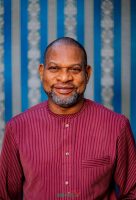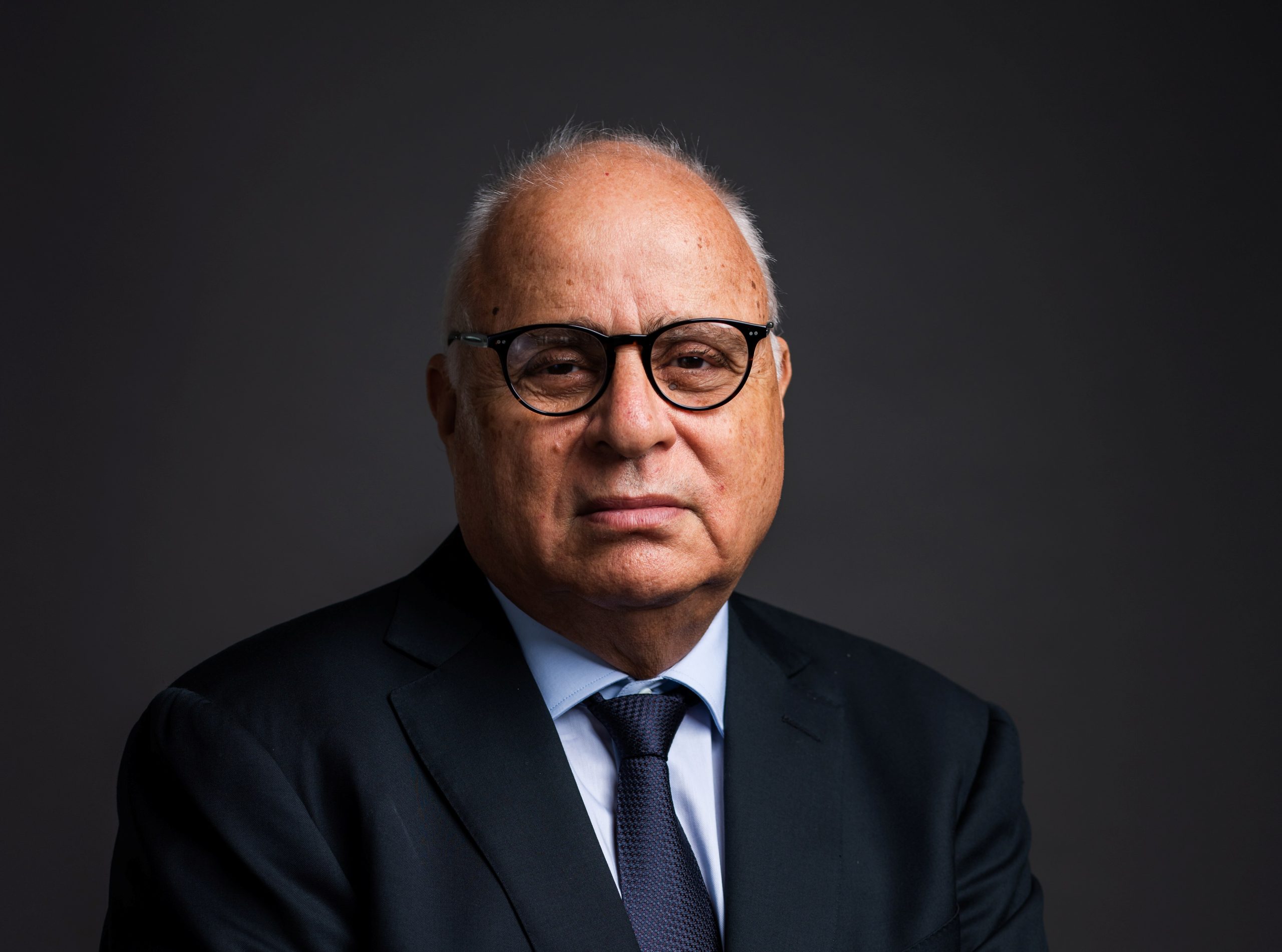State Social Health Insurance Authorities play a vital role in driving equitable healthcare financing and delivery in Nigeria. By pooling resources and reducing out-of-pocket spending, they ensure access to affordable, quality services while protecting families from financial hardship. In this first edition of the special report, The Guardian highlights two out of the five top-performing authorities whose visionary leadership, reforms, and innovations are transforming healthcare and advancing Universal Health Coverage.

Dr. Zuoboemi Agadah: Leading Bayelsa’s Health Insurance Revolution with Vision and Integrity
Dr. Zuoboemi Agadah is a man whose journey reflects both medical excellence and public service leadership. A seasoned Consultant Physician and Cardiologist, he has worn many hats with distinction, from starting out in the early 2000s as a Medical Officer II in the Bayelsa State health system, to serving as Personal (Chief) Physician to a former Governor of Bayelsa State, and now holding two pivotal positions in the state’s healthcare governance: Permanent Secretary in the Bayelsa State Civil Service and Executive Secretary of the Bayelsa Health Insurance Scheme (BHIS).
With a career spanning frontline patient care, high-level advisory roles, and systemic health reforms, Dr. Agadah represents a new breed of medical leaders whose influence extends far beyond the consulting room. Today, he channels his expertise and vision into building a people-focused, financially sustainable health insurance system that not only improves access but also redefines how healthcare is delivered in Bayelsa State.
Reflecting on what inspired his leadership of the Bayelsa Health Insurance Scheme (BHIS) and the vision shaping its operations, Dr. Zuoboemi Agadah disclosed that one of the greatest challenges in Bayelsa’s healthcare space and indeed in Nigeria as a whole has always been the late presentation of patients. Too often, people avoid seeking professional medical help until their ailments have advanced to critical stages, sometimes developing life-threatening complications. At the root of this problem, he explained, is poverty, which keeps people away from hospitals, followed closely by ignorance and a handful of other socio-cultural factors. The result is a troubling cycle of poor health-seeking behaviour that puts lives at risk and deepens financial hardship.
For him, breaking this cycle required a bold and sustainable solution. That solution came in the form of health insurance, designed to pool resources through affordable monthly premiums that do not impose heavy economic strain on families. By spreading costs across a wider population, the scheme makes healthcare more accessible, drives up service utilization, and shields households from catastrophic medical expenses that can easily push them into extreme poverty.
“This realization formed the bedrock of the vision, targets, and goals driving BHIS. It was never just about creating another agency, but about building a system that guarantees equity, sustainability, and expansion of coverage across all socio-economic strata.” He explained.
At the heart of the scheme is the principle of progressive universalism, a model that prioritises the most vulnerable while steadily expanding coverage to include everyone.
Dr. Zuoboemi Agadah further explained that the Bayelsa Health Insurance Scheme is structured around two main benefit plans: the Standard Plan and the Vulnerable Group Plan. Both were carefully designed with one overarching goal in mind; maximizing population health through a social intervention model that ensures no one is left behind. Within these broad plans, the scheme runs a set of inclusive programmes that reflect the diverse realities of Bayelsans. From workers in the formal sector to traders and artisans in the informal economy, from students in tertiary institutions to the most vulnerable members of society, every demographic group has been accounted for. Some participants pay full or partial premiums depending on their capacity, while others, particularly those classified as vulnerable, are fully covered without paying any premium at all.
“These programmes are not theoretical, they are fully operational and represent the different strategies we have adopted to drive buy-in and expand coverage across the state.” He stressed. His point is underscored by the numbers: as of September 10, 2025, a total of 225,079 people are registered under the scheme, excluding those who may have passed on or dropped out. Importantly, pensioners in the state civil service were automatically captured from inception as part of the formal sector programme, ensuring continued care beyond active service. The latest enrolment figures for 2025 are particularly telling. A total of 42,556 new participants have joined the scheme this year alone, with a striking 81 percent enrolled under the Vulnerable Group Plan. This, Dr. Agadah noted, reflects the scheme’s true essence: a commitment to equity and protection for those most at risk of being left behind.
On how the scheme has transformed healthcare affordability and access, particularly for vulnerable groups, Dr. Agadah pointed to the steady rise in enrolment over the past eight months as a clear indicator of progress. According to him, more citizens are buying into the scheme, awareness of its benefits is spreading, and, most importantly, the health-seeking behaviour of the people is changing in measurable ways.
In his words, “This is to say that the scheme has guaranteed access to healthcare in Bayelsa, ensuring that medical services can be afforded either by paying minimal monthly sums as a premium, or in the case of the vulnerable, without paying any premium at all.” This, he emphasized, is the essence of BHIS as a social safety net, protecting citizens from financial hardship while promoting equitable access to quality care.
Beyond affordability, he stressed that the quality of care itself is steadily improving. Accredited hospitals are continuously monitored through structured quality improvement plans, overseen by the agency’s Standards and Quality Assurance Unit. Regular evaluations of services at healthcare facilities, coupled with prompt and effective complaint management systems, have further boosted enrollee confidence. These measures, he said, have not only strengthened public trust but also ensured consistently high utilisation rates across the state.
Commenting on innovation and technology-driven reforms introduced to enhance enrolment, claims, and service delivery, Dr. Zuoboemi Agadah pointed to one of the scheme’s most significant milestones, which is the deployment of a new health insurance ICT solution in December 2024, co-designed with BHIS. According to him, the platform has transformed the way the scheme operates by improving data collection and management, streamlining business processes to drastically cut down paper use, and introducing advanced tools for fraud detection, management, and analytics.
He maintained that the system is not static as new features are being rolled out to widen access and convenience. Online registration and self-help services are being tailored for informal sector enrollees, while online payment platforms are being developed to allow diaspora participation and remittances. Together, these innovations are removing barriers to entry and creating a more inclusive health insurance ecosystem.
He further pointed out that at the provider level, the ICT system has enabled real-time interaction with healthcare facilities, reducing waiting times for referral code generation and authorisations for secondary services. Capitation computation and generation have also been automated, with payments now calculated and finalised on the 7th of every month at exactly midnight. Claims submission and processing are carried out in real time, ensuring that reimbursements reach providers as early as the first or second week of each month, complete with electronic payment advice sent directly by email.
“Looking ahead, an electronic solution to coordinate medical emergencies has already been developed and is in the process of deployment, another leap that promises to further strengthen responsiveness and patient care under BHIS.” He enthused.
He reflected on the collaborations that have strengthened the reach and impact of the Bayelsa Health Insurance Scheme, describing the scheme’s approach as one built on partnerships with healthcare providers, development partners, and, most importantly, the communities it serves. He maintained that healthcare providers remain at the core of the system, and BHIS maintains close ties with them through regular interactive sessions, supportive supervisory visits, and ongoing monitoring.
Beyond providers, the scheme has taken its message directly to the people. Community outreach programmes, strategic meetings with traditional and local leadership structures, and alignments with vocational associations have all been instrumental in expanding participation. Market outreaches organised by the scheme’s marketing unit have further taken health insurance awareness into everyday spaces where people live and work. Perhaps the most transformative of these efforts is the implementation of the Vulnerable Population Social Health Insurance Programme, which has directly impacted the state’s most disadvantaged groups. In this case, communities are not just passive beneficiaries; they are active partners, with members and leaders participating in identifying beneficiaries and joining training sessions designed to build ownership and trust.
He stressed that development partners, too, have been key allies, as their collaboration has come in two major forms: providing technical assistance through training, the design of strategic plans, and the development of implementation blueprints; and supporting coverage expansion through directed premium subsidies for selected beneficiaries. Together, these layers of collaboration have given BHIS both the structure and the reach to strengthen health insurance coverage across Bayelsa, making it not just a government initiative but a shared project of providers, partners, and communities.
Speaking on the guiding principles that shape his leadership and the message he wishes to pass to stakeholders, Dr. Zuoboemi Agadah emphasized that the Bayelsa Health Insurance Scheme is built on a foundation of openness, transparency, and prudence. By applying the highest standards in financial management and accountability, BHIS has been able to create a sound financial base that strengthens confidence and ensures long-term sustainability.
Sustainability, however, has not been left to chance, as over the years, the scheme has deliberately taken bold steps to anchor its operations on enduring structures. One of the most visible symbols of this is the establishment of the state’s Health Insurance House, a dedicated office complex that stands as both a functional hub and a statement of permanence. In addition, a reinsurance fund has been carefully built up to provide a financial buffer against shocks, reducing dependence on government interventions, the deployment of a robust ICT system has further modernized business processes, cutting out inefficiencies while enabling transparency and real-time management.
Beyond technology, BHIS has invested in strengthening its institutional systems and structures to ensure the smooth running of daily operations. Just as importantly, the scheme continues to actively engage stakeholders, investing in awareness creation, especially within the informal sector, to drive greater participation and widen population coverage.
He concluded that through these principles and deliberate strategies, the Bayelsa Health Insurance Scheme is not only sustaining its present operations but also laying a strong foundation for future growth, proving that health insurance, when managed with integrity and vision, can be a lifeline for every citizen.

Governor Bago’s Leadership Puts Niger State on Healthcare Excellence Map
Healthcare in Niger State is getting a new lease of life under the visionary stewardship of His Excellency, Farmer (Dr.) Mohammed Umaru Bago, Executive Governor of Niger State. Determined to make medical services affordable, accessible, and sustainable, the Governor is driving far-reaching reforms through the Niger State Contributory Health Agency (NiCare) in a bit to improve livelihood and achieve universal health coverage.
The scheme, a flagship component of his New Niger Agenda, is designed to cushion the burden of healthcare costs on families while prioritizing vulnerable groups such as children, pregnant women, the elderly, and people living with disabilities. By strengthening NiCare, Governor Bago is not only addressing immediate health needs but also laying the foundation for a healthier, more inclusive future for Nigerlites.
It is this exemplary performance and commitment to people-centered healthcare delivery that has earned Niger State special recognition by The Guardian as one of the five (5) Best Performing State Social Health Insurance Authorities in Nigeria. The recognition underscores how Governor Bago’s effective governance, strategic partnerships, technology-driven processes, and grassroots community outreach are driving affordable and universal healthcare access in the state.
At the helm of NiCare is Sulayman Abu-bakr MPH, a seasoned public health specialist with over a decade of experience in health systems strengthening, digital transformation in primary healthcare, health financing, and programme management. His professional journey includes significant contributions at the National Primary Health Care Development Agency (NPHCDA), where he played a pivotal role in developing the Electronic Management of Immunization Data (EMID) for Nigeria’s COVID-19 response and advancing the DHIS2 platforms nationally. Now serving as the Executive Secretary and Chief Executive Officer of NiCare, Abu-bakr brings this wealth of expertise to align with the New Niger vision of His Excellency, Farmer (Dr.) Mohammed Umaru Bago. His focus is to expand access to healthcare and advance universal health coverage as a pathway to better livelihoods and improved wellbeing for the people of Niger State.
Speaking on what motivated his leadership, Abu-bakr explained that his drive is anchored on the poor health indices in Nigeria, worsened by the heavy burden of out-of-pocket expenditure on healthcare. According to him, the reality that many families are pushed deeper into poverty simply because they cannot afford medical bills inspired his resolve to act. “The desire to contribute meaningfully towards reducing the high multidimensional poverty rate in both Nigeria and Niger State reinforced my conviction that no Nigerlite should be denied healthcare because of inability to pay,” he said. “NiCare has therefore been positioned as a flagship instrument of the New Niger Agenda, with a clear focus on strengthening health systems, expanding coverage, and improving the quality of care.”
Abu-bakr further emphasized that the Agency’s vision is to build a reliable, inclusive, financially sustainable, and technology-driven health insurance scheme that guarantees access to affordable and quality healthcare for every household in Niger State, attributing this progress to the unwavering commitment of His Excellency, Farmer (Dr.) Mohammed Umaru Bago, whose bold reforms and enabling support have provided the foundation for NiCare to thrive.
Talking about the successes recorded by the scheme under his stewardship, the NiCare boss explained that the achievements so far are anchored on four strategic pillars, each one carefully designed to deliver sustainable impact, with strong backing from the State Government.
The first pillar, Institutional Strengthening, has seen NiCare reorganized for greater efficiency, with clarified roles and stronger accountability mechanisms. Within just a year, the agency revised its operational guidelines and controls in ways that boosted contracted facility quality scores from 77.2 percent to 94.2 percent. To safeguard finances, innovations such as the NiCare Fund Management System (NiFMS) and electronic voucher reforms were introduced, while a dedicated Help Desk and formal enrollee feedback systems now ensure greater responsiveness and trust.
The second pillar focuses on Corporate Communication and Partnerships, recognizing that healthcare delivery must be rooted in community ownership and collaboration. NiCare has conducted extensive statewide sensitization campaigns, working closely with religious, traditional, and community leaders to build acceptance. Partnerships have been expanded with Third Party Administrators, private employers, and providers to scale enrolment, while donor linkages with organizations such as UNICEF, GAVI, and CHAI have been strengthened to sustain coverage for the vulnerable. From town hall meetings to media engagements, grassroots involvement has deepened, reinforcing NiCare’s credibility across the state.
Coverage Expansion forms the third pillar and perhaps the most visible success of the agency. To lead by example, His Excellency, Farmer (Dr.) Mohammed Umaru Bago, alongside the deputy governor, secretary to the state government, and head of service, all enrolled in the state’s contributory health insurance scheme. This symbolic gesture of leadership has inspired confidence across the state. Enrolment figures tell the story more vividly: from 56,000 in May 2023, the number has grown by 67.6 percent to reach 145,651 by August 2025, supported by the Basic Health Care Provision Fund, donor funding, and innovative insurance packages. Vulnerable persons’ coverage also expanded significantly, rising by 253.4 percent from 2,830 in 2023 to 10,001 by August 2025. Tailored products such as the Retiree Medical Insurance Package (RMIP) and the Tertiary Institutions Social Health Insurance Programme (TISHIP) have further widened access, while UNICEF, GAVI, and CHAI’s support enabled enrolment of over 34,600 women and children, leading to a dramatic increase in maternal and child health service utilization from 15.6 percent to 36.3 percent.
The fourth pillar, Digital Transformation, is positioning NiCare as one of the most technologically advanced state health insurance schemes in Nigeria. A robust enrollee management system now ensures seamless registration, while claims processing and financial transactions have been fully digitized through NiFMS and electronic filing systems. To sustain accountability, a comprehensive Monitoring and Evaluation platform has been rolled out, enabling real-time performance tracking and data-driven decision-making.
He maintained that NiCare has broken down financial barriers by tailoring its products to the specific realities of different groups; retirees, students, women, children, and farmers. With carefully designed subsidies and strategic partnerships, the agency has succeeded in moving thousands of households away from catastrophic out-of-pocket spending and into sustainable health insurance coverage. This shift, he explained, has directly improved affordability and guaranteed access, particularly for vulnerable citizens who previously lacked any form of financial protection.
Commenting on the innovative reforms and technology-driven processes introduced to enhance enrolment, claims, and service delivery, Abu-bakr emphasized that the foundation of NiCare’s progress is digital innovation. From the NiCare Fund Management System (NiFMS) to e-vouchers, from enrollee management platforms to real-time monitoring and evaluation dashboards, every layer of the agency’s operations is powered by technology. These innovations, he said, ensure transparency in claims processing, accountability in financial management, and efficiency in service delivery, setting new benchmarks for state health insurance schemes across Nigeria.
Beyond technology, he stressed, NiCare operates on the principle of shared responsibility. The agency works closely with healthcare providers and Third-Party Administrators to expand service reach, collaborates with development partners such as UNICEF, GAVI, and CHAI to broaden coverage for vulnerable groups, and engages directly with communities to raise awareness and build trust. This tripartite collaboration between providers, partners, and people has been critical to the rapid growth and visible impact of NiCare, making it not just a government initiative but a people-owned movement for better healthcare in Niger State.
He acknowledged, however, that the successes recorded have not come without challenges. According to him, NiCare has had to contend with three major obstacles: limited awareness about the scheme, low participation from the informal sector, and poor health-seeking behavior among the public. These hurdles, he explained, initially slowed progress but were met with proactive strategies that turned potential setbacks into opportunities for growth.
To overcome these challenges, the agency embarked on a comprehensive restructuring process, digitized enrollee and financial management systems, and invested significantly in staff capacity development. Alongside these internal reforms, NiCare rolled out aggressive awareness campaigns to educate the public about the benefits of health insurance and the importance of timely healthcare. These measures, he noted, have boosted public trust, strengthened institutional systems, and enhanced service delivery across all levels.
“We are intensifying our advocacy with critical stakeholders to ensure buy-in and greater enrolment into the contributory healthcare scheme,” he said. “At the same time, we are deliberately working to modify public behavior in order to encourage improved health-seeking attitudes and practices.”
Looking ahead, The Executive Secretary outlined NiCare’s strategic goals, stressing that the vision over the next five years is to achieve near-universal health coverage across Niger State. To make this a reality, the agency is working to expand enrolment in every local government area, deepen participation from the informal sector, and fully operationalise all digital platforms for seamless service delivery. Equally important is the institutionalisation of continuous quality improvement in healthcare services and the sustainability of innovative products such as the Tertiary Institutions Social Health Insurance Programme (TISHIP) and the Retiree Medical Insurance Package (RMIP). He added that these ambitions are not in isolation but are being vigorously pursued with the strong political will and unwavering support of His Excellency, Farmer (Dr.) Mohammed Umaru Bago, whose leadership has created the right environment for NiCare’s growth.
Reflecting on the guiding principles that define his leadership, Abu-bakr explained that his approach is anchored on accountability, innovation, inclusivity, and evidence-based decision-making. These principles, he said, keep NiCare focused, transparent, and impactful in the execution of its mandate.
To stakeholders, his message is equally clear; “health insurance is not just a government programme, it is a collective investment in the dignity, productivity, and resilience of Nigerlites. Under the New Niger Agenda, and with the relentless commitment of His Excellency, Farmer (Dr.) Mohammed Umaru Bago, NiCare is demonstrating that a healthier state is indeed a more prosperous state.”






